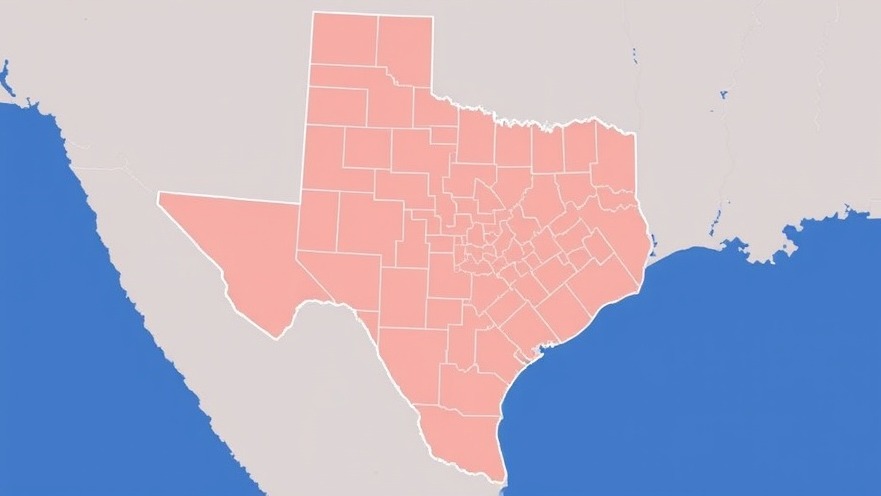
The Controversy Over Redistricting in Texas
The Texas House’s recent redistricting committee hearing in Houston has highlighted a growing concern among local residents and lawmakers, particularly as it pertains to the absence of proposed congressional district maps. With the legislative session underway, tensions were palpable during the hearing on Saturday, July 26, 2025, where Democratic members voiced their frustration over the proceedings.
Attendees filled the University of Houston’s Student Center, eager to express their sentiments on the upcoming changes to congressional districts, specifically those primarily represented by Black and Latino Democrats. However, what transpired was a confusing situation, as highlighted by Democratic State Rep. Senfronia Thompson who pointed out that the public was being asked to provide testimony on a revised congressional redistricting plan that didn’t yet exist.
Why Redistricting Matters
Redistricting, the process of redrawing district boundaries, significantly influences political representation and community resources. Having occurred post-2020 census, the existing maps were drawn to reflect population changes. However, amid the current discussions, critics have raised alarms over potential gerrymandering, which could skew representation to benefit certain political groups over others.
According to Jerome Wald, a Houston resident, the legitimacy of such mid-decade redistricting efforts is questionable. “I wish that this Legislature were working on redistricting fairness rather than gerrymandering,” said Wald, echoing the concerns of many. With the absence of maps, citizens feel unable to engage meaningfully in the democratic process regarding how these changes might impact their communities.
The Legislative Response
Chair Cody Vasut of the redistricting committee reassured attendees that further hearings would be scheduled after maps are released. Yet, the lack of visibility and engagement at this stage has left many questioning the transparency of the process. State Rep. Jolanda Jones emphasized the irony of hosting a hearing when residents were left in the dark regarding the specifics of the proposed changes—denying them the chance to advocate for their interests effectively.
Adding to the urgency, U.S. Rep. Sylvia Garcia, representing one of the targeted congressional districts, emphatically opposed the redistricting efforts, stating, “My answer is hell no, we don't need to be doing this.” Her position emphasizes a crucial concern among lawmakers from affected areas who fear losing influence and representation.
The Bigger Picture: Societal Impact of Redistricting
The ongoing debate over redistricting in Texas raises significant questions about community identity and voter equity. Many citizens fear their voices may be diluted or ignored in the political landscape. Research shows that areas with fairer representation tend to experience better public services and resources, suggesting that the stakes are high for local communities.
Such transformations are not isolated incidents; they reflect broader trends across the nation where redistricting processes often fall prey to political maneuvering. Understanding these dynamics encourages civic engagement, urging Texans to stay informed and participate actively in discussions that will shape their electoral landscape.
Next Steps for Concerned Texans
While the hearing may have left many disheartened, it also serves as a rallying point for civic engagement. Residents must advocate for a transparent redistricting process, ensuring that they have opportunities to review maps well before votes are cast. As the special legislative session continues, vigilance is key to accountability within the Texas Legislature.
One essential action individuals can take is to join local advocacy groups focusing on fair representation. Workshops and community meetings organized by civic organizations can empower residents to understand the implications of redistricting while providing a platform to share their concerns.
Final Thoughts
The overlapping complexities of Texas redistricting, local representation, and political fairness point to an urgent need for community involvement. As the Legislature moves forward, Texas residents must hold their representatives accountable to ensure an equitable redistricting process that amplifies, rather than silences, their voices.
 Add Element
Add Element  Add Row
Add Row 



Write A Comment